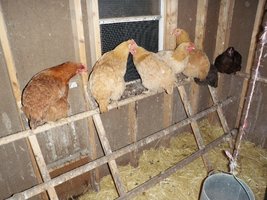- Joined
- Jul 31, 2019
- Messages
- 1,320
- Likes
- 2,820
If you enjoy the forum please consider supporting it by signing up for a NES Membership The benefits pay for the membership many times over.
I could see that beefsteak on a burger right now.More fungus...View attachment 503485
Beefsteak
And some chicken..View attachment 503486View attachment 503487
I know I’m hot for fungi right now but I find that kingdom absolutely fascinating. Here’s a video of the Scarlatina Bolete with the almost instant and intense blue staining when cut. There is a very complex chemistry involved with certain fungi which is just a sample of the importance of these organisms. Variegatic and xerocomic acid is responsible for the bluing when oxidized.
View: https://youtube.com/shorts/ZYi7pJ8UTB8?feature=share
No doubt there is much learning and much cautionIt's funny, if you weren't saying it's safe, I would be certain that blue is a warning.
So much to learn
Definitely tons of caution. Just added the mushroom book to a list for the future, and looking forward to the edibles walk next weekend.No doubt there is much learning and much cautionto exercise. You have to study the signs from host trees, region, stalk, pores, cap, veil, etc, etc. to be sure. With the Boletus group there is an enormous variety. They contain the tastiest versions I know of. Here’s one website to exhibit that variability. Boletus edulis (“King Bolete”)
Be sure to pinch the tips of this years black berry canes (light green with no fruit) while you’re picking off of last years canes.Blueberries and Blackberries are doing very well in a fairly pour soil condition. We planted last spring and the blackberries have already created half a dozen new runner/sprouts. This surprised me after only one year and we do zero fertilization or watering. We started picking fully ripened berries last week.
I'm going to plant more of these and try to line the entire driveway eventually. They are currently fenced in to protect them from deer until I feel they have spread out enough.
View attachment 503360View attachment 503361View attachment 503362View attachment 503363View attachment 503364
I've been working on edible landscaping. Blueberry bushes instead of ornamentals. Raspberries and grapes. Smaller sized fruit trees because we're limited on space. We have chickens and a garden but it is more supplemental. I doubt in our situation we could grow all of our food. I've added some nut trees in wooded areas near the house. Not sure how that will work out but if you have the space I'd add Chinese chestnut and other nut trees.
I have a neighbor that has a few goats. They seem to be more work than I thought they would be.
Any ponds or lakes nearby for fishing?
I’ve raised full size and dwarf Nubian goats for over 20 years. I’ve never had a break out.Goats are AWESOME pets for somebody ELSE to have and to take care of. They're cute as hell to visit, just hell to take care of on a daily basis. They're also incredible escape artists. Much worse than horses or cows. And when (not if, but WHEN) they get loose, they will eat everything in sight, starting with your prize rose bushes and anything else you enjoy looking at or harvesting for yourself. Of course, after that they will eat the brush and weeds down to the dirt, along with with your lawn.
Other than those points, I have no strong feelings about goats. Well, their milk is rank.
Their "end product" does make excellent fertilizer, though!
SecondedI’ve raised full size and dwarf Nubian goats for over 20 years. I’ve never had a break out.
As long as my fences are good and they have food and water in their yard they’re not going anywhere.
Hogs on the other hand have been a pain in the ass for me to keep fenced in.
By fall they’re about 300 lbs and are strong like a tank, and smart. They can just lift fence posts out of the ground with their nose.
I’ve raised full size and dwarf Nubian goats for over 20 years. I’ve never had a break out.
As long as my fences are good and they have food and water in their yard they’re not going anywhere.
Hogs on the other hand have been a pain in the ass for me to keep fenced in.
By fall they’re about 300 lbs and are strong like a tank, and smart. They can just lift fence posts out of the ground with their nose.
Maybe a shallow graveyard lolSo is there a dead body buried in the center of that fungi ring?
Chicken of the woods. Very tasty.This was one I found a couple years ago. No one could tell me if it was edible so I just enjoyed the beautiful color it had for a few days.
That’s what I thought it was.Chicken of the woods. Very tasty.
They lay pretty well thru the winter tooBuff Orpingtons are pretty attractive hens. This girl has not yet laid but soon she will….
View attachment 508128View attachment 508129View attachment 508130
Most chickens have significant reduction (if not a complete cessation) in their production when the days get shorter.They lay pretty well thru the winter too

